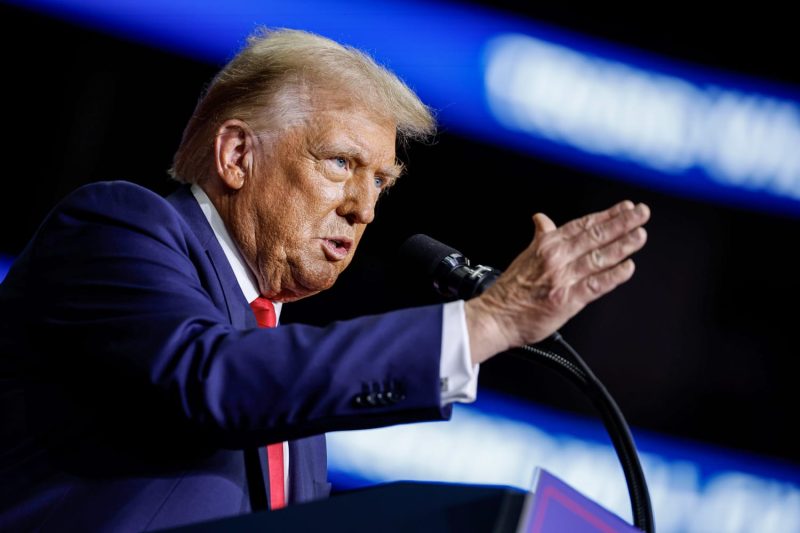
Trump’s Tariff Tantrum: U.S. Companies Race to Secure Lobbyists and Loopholes
In light of President Trump’s continued threats to impose tariffs on various imports, many U.S. companies find themselves navigating a complex landscape of lobbying efforts and loopholes to protect their interests. The possibility of significant financial implications has prompted a flurry of activity as these businesses seek to mitigate the potential damage of such policy changes.
One of the primary strategies employed by U.S. companies facing the specter of tariffs is engaging in intense lobbying efforts. By hiring lobbyists with political connections and expertise in trade policy, businesses attempt to influence government decisions in their favor. These lobbyists work to educate policymakers on the potential negative impact of tariffs on their industries, presenting data and arguments to support their case.
Furthermore, companies are actively exploring loopholes within existing trade regulations to circumvent or minimize the impact of tariffs. This often involves reevaluating their supply chains, sourcing materials from alternative countries not subject to tariffs, or restructuring their operations to reduce their exposure. By strategically restructuring their business models, companies aim to maintain profitability and competitiveness in the face of changing trade dynamics.
Additionally, some companies are turning to legal avenues to challenge the constitutionality of proposed tariffs. Through legal challenges and appeals, businesses seek to stall or even overturn potential tariffs by raising questions about compliance with international trade laws and agreements. These legal battles can be protracted and resource-intensive but are seen as a last resort for companies facing significant financial risks.
Moreover, in response to the uncertainty surrounding tariffs, many U.S. companies are investing in supply chain diversification. By spreading their manufacturing operations across multiple countries, businesses aim to reduce their dependence on any single market and minimize the impact of tariffs on their bottom line. This proactive approach can help companies adapt to changing trade policies and maintain a competitive edge in the global marketplace.
In conclusion, the threat of tariffs imposed by the Trump administration has sent U.S. companies scrambling to protect their interests through lobbying, loophole exploitation, legal challenges, and supply chain diversification. As businesses navigate this uncertain landscape, their ability to adapt and strategize effectively will be critical in determining their success in mitigating the potential impact of tariffs on their operations. Adaptability, resilience, and foresight will be essential for companies to weather the storm of trade disruptions and emerge stronger in an ever-changing global economy.
